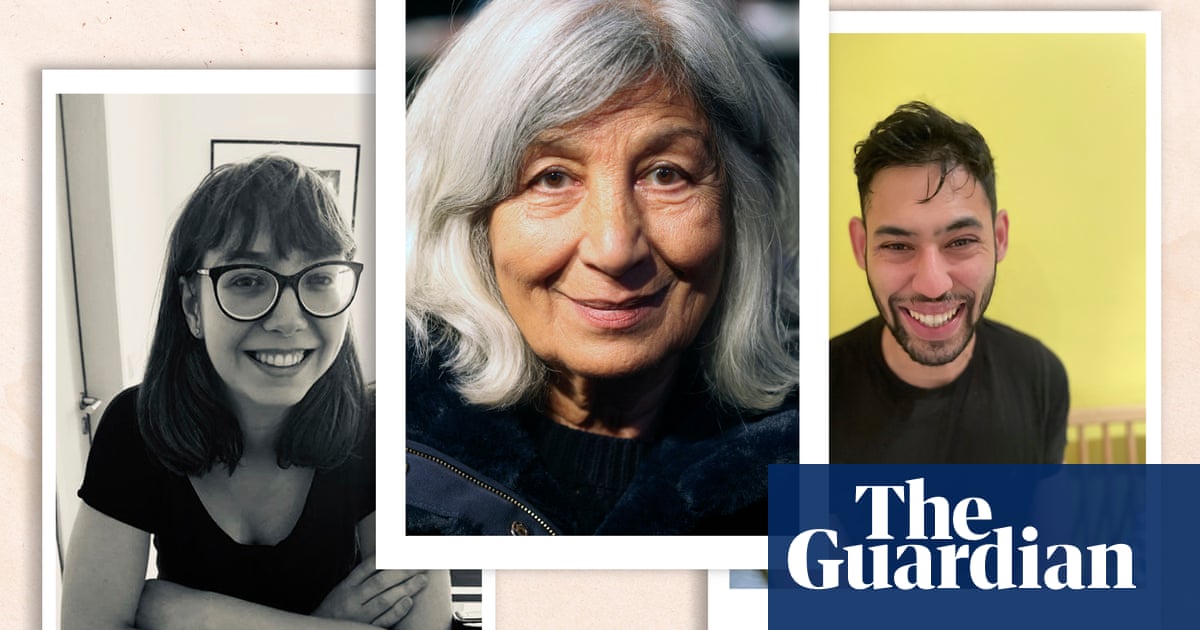British-Palestinian writer NS Nuseibeh has won the Jhalak prose prize for writers of colour for a “timely” and “timeless” essay collection, Namesake, which explores identity, religion and colonialism.
The inaugural Jhalak poetry prize went to Mimi Khalvati for a book of collected poems, while the children’s and young adult prize was awarded to Nathanael Lessore for King of Nothing, a teen comedy about an unlikely friendship between two boys.
“These are books full of courage, insight and panache,” said prize director Sunny Singh. “They compassionately and with utmost honesty confront terrible realities and explore painful and complex histories and lives even as they exemplify playful stylistic experimentation and mastery of form and language.”
The winners were announced at a ceremony at the British Library in London on Wednesday evening, with each writer awarded £1,000.
In Namesake, Nuseibeh looks towards her namesake, Nusayba, an early convert who fought alongside the prophet Muhammad. The book is “an illuminating and trenchant exploration of Muslim feminism”, wrote Dina Nayeri in aGuardian review.
“Searching and honest, these essays carry the reader from New York dinner parties to seventh-century battlefields to Jerusalem checkpoints and down the alleyways of a shrewd and compassionate mind,” Nayeri added.
This year’s prose prize was judged by the novelist Sareeta Domingo, journalist and writer Taran N Khan and nonfiction writer Yepoka Yeebo, who won the2024 prize.
Sign up toBookmarks
Discover new books and learn more about your favourite authors with our expert reviews, interviews and news stories. Literary delights delivered direct to you
after newsletter promotion
Nuseibeh was selected as winner from a shortlist that also featuredMy Friends by Hisham Matar, Everest by Ashani Lewis, Manny and the Baby by Varaidzo, The Rest of You by Maame Blue, andWhere We Come From by Aniefiok Ekpoudom.
Khalvati’s Collected Poems “is a luminous testament to a lifetime of lyrical precision, emotional depth, and formal mastery”, said poet Jason Allen-Paisant, who was joined on the judging panel by Malika Booker andWill Harris.
Other books shortlisted for the poetry prize were Adam by the late Gboyega Odubanjo, Boiled Owls by Azad Ashim Sharma, Horse by Rushika Wick, Self-Portrait With Family by Amaan Hyder, andTop Doll by Karen McCarthy Woolf.
Children’s and young adult winner King of Nothing also topped the older readers category in the Waterstones children’s book prizeearlier this year. “It’s testament to Lessore’s lightness of touch and believable characters that despite delving into big topics such as toxic masculinity and grief, this is an immensely readable book that never feels too worthy”, wrote Fiona Noblein the Guardian. Broadcaster and writer Yassmin Abdel-Magied,2024 winnerHiba Noor Khan and Alom Shaha judged this year’s children’s and young adult prize.
Alongside Lessore on the shortlist were Bringing Back Kay-Kay by Dev Kothari,Flower Block by Lanisha Butterfieldand Hoang Giang, Mayowa and the Sea of Words by Chibundu Onuzo,The Boy to Beat the Gods by Ashley Thorpe, andThe Thread That Connects Us by Ayaan Mohamud.
The prize, established in 2017, is open to books published by writers of colour in the UK or Ireland. Past winners of the prize include Reni Eddo-Lodge, Guy Gunaratne andTravis Alabanza.
